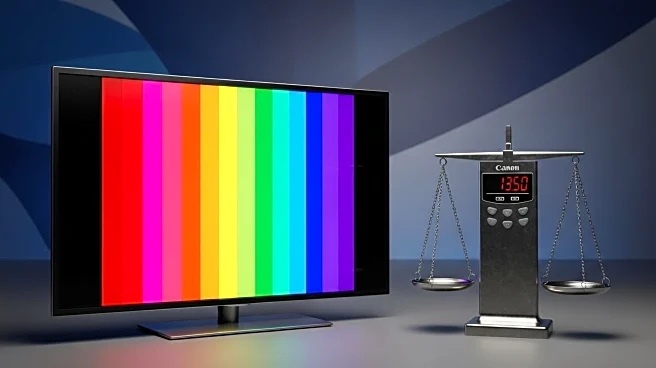What is the story about?
What's Happening?
TelevisaUnivision has launched an ad campaign accusing YouTube TV of discriminatory practices in their ongoing carriage dispute. The conflict arises as YouTube TV plans to remove Univision from its basic tier and offer it as part of a Spanish-language add-on, which TelevisaUnivision labels as an '18% Hispanic Tax.' The current carriage agreement between the two companies is set to expire on September 30, 2025. TelevisaUnivision argues that Univision is a critical component of mainstream American broadcasting, especially for Hispanic audiences, and should not be relegated to a niche add-on. YouTube TV, however, contends that their carriage decisions are based on viewer consumption and pricing, and they aim to reach a fair deal before the deadline.
Why It's Important?
This dispute highlights the broader issue of access to Spanish-language media for Hispanic audiences in the U.S. TelevisaUnivision's accusation of a 'Hispanic Tax' underscores concerns about potential discrimination and the marginalization of Spanish-language content. The outcome of this dispute could set a precedent for how media companies negotiate carriage agreements, particularly concerning minority-focused content. If YouTube TV proceeds with its plan, it could affect millions of Hispanic viewers who rely on Univision for news and entertainment, potentially leading to increased costs for accessing essential content.
What's Next?
As the September 30 deadline approaches, both parties are under pressure to negotiate a resolution. If an agreement is not reached, Univision's programming may be removed from YouTube TV, impacting subscribers who depend on the channel. TelevisaUnivision may continue to advocate for fair access to its content, possibly seeking support from civil rights organizations or engaging in public campaigns to influence negotiations. YouTube TV's stance suggests they are prepared to remove Univision if a deal is not made, which could lead to subscriber dissatisfaction and potential loss of customers.
Beyond the Headlines
The dispute raises questions about the ethical responsibilities of media providers in ensuring equitable access to diverse content. It also highlights the cultural significance of Spanish-language media in the U.S., where Hispanic audiences represent a substantial demographic. The resolution of this conflict could influence future negotiations between media companies and streaming services, potentially affecting how minority-focused content is valued and distributed.















